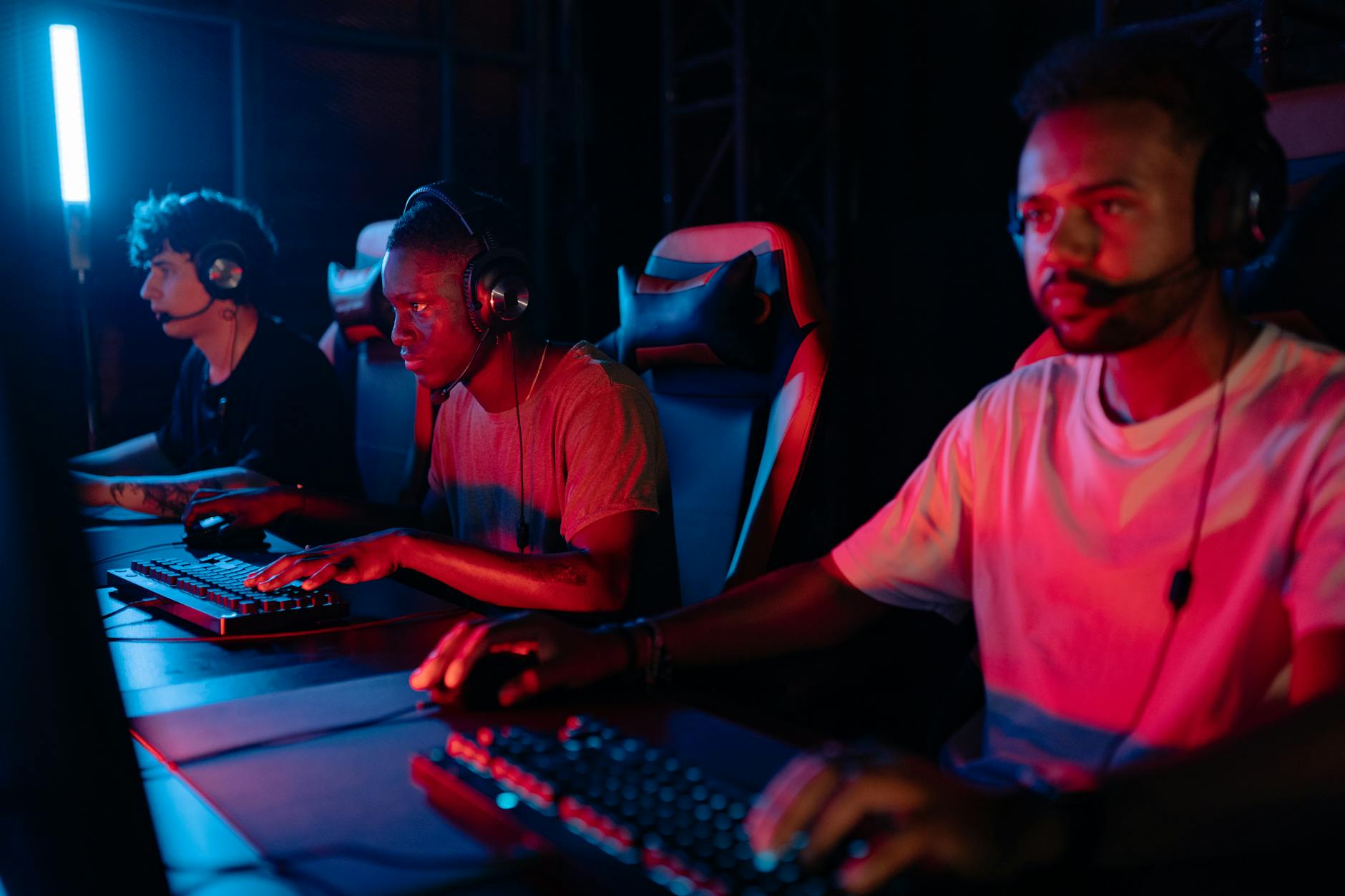The world of gaming, once a niche hobby, has exploded into a global phenomenon, shaping culture, influencing technology, and even impacting economies. From the simple pixelated characters of early arcade games to the hyper-realistic worlds of modern AAA titles, gaming’s evolution mirrors a parallel evolution in its culture. This article delves into the multifaceted nature of gaming culture, exploring its key components: the passionate communities that thrive within it, the competitive spirit that drives its evolution, the storytelling and narrative structures that engage millions, and the ever-present impact of technology. Understanding this vibrant culture requires looking beyond the pixels on the screen and recognizing the profound human connections and creative expressions that define it.
The power of community
Gaming fosters a unique sense of community. Online multiplayer games, in particular, create virtual spaces where players from all over the world can connect, collaborate, and compete. These communities are often built around shared interests, specific games, or even broader gaming subcultures. This shared experience creates strong bonds, a sense of belonging, and a platform for social interaction. Guilds in MMORPGs, clans in competitive shooters, and even casual online groups centered around shared enjoyment all exemplify this. The collaborative effort needed to overcome challenges in many games strengthens these bonds even further, creating a sense of camaraderie and mutual support. Beyond gameplay, these communities often organize events, share strategies, and create a supportive environment for both experienced and new players. This sense of community extends beyond the online realm, with many gaming conventions and gatherings bringing these virtual communities into the physical world.
Competition and Esports
Competition is deeply ingrained in the culture of gaming. From friendly rivalries between friends to the highly organized world of esports, the drive to win and excel is a significant motivator for many gamers. Esports, in particular, has transformed gaming into a professional spectator sport, with teams, sponsors, and millions of viewers worldwide. The rise of esports has also created new opportunities for players, commentators, and other professionals involved in the industry. This competitive aspect has also pushed the boundaries of technological advancements, leading to improved hardware, software, and game design to cater to this high level of competition.
Narrative and Storytelling
Modern video games are increasingly recognized for their powerful storytelling capabilities. Many games go beyond simple gameplay mechanics, offering complex narratives, compelling characters, and rich worlds that immerse players in engaging stories. This narrative aspect of gaming appeals to a much broader audience, attracting players who may not be primarily interested in the competitive aspects of the medium. Games are now capable of delivering sophisticated narratives that rival those found in books, films, and other forms of media. The interactive nature of games further enhances this storytelling, allowing players to shape the narrative through their choices and actions.
The ever-evolving landscape of technology
Technology is a driving force behind the constant evolution of gaming culture. From the early days of simple pixel graphics to the photorealistic visuals of modern games, advancements in computing power, graphics processing, and virtual reality have continuously redefined the gaming experience. This constant evolution also drives the creation of new gaming genres, innovative gameplay mechanics, and a diverse range of gaming platforms. The ongoing advancements in technology continue to expand the possibilities of gaming, impacting not only the technical aspects of the experience, but also influencing how games are designed, played, and experienced.
| Gaming Aspect | Impact on Culture |
|---|---|
| Community Building | Creates strong social connections, fosters a sense of belonging. |
| Esports | Transforms gaming into a professional spectator sport, drives technological advancements. |
| Narrative Storytelling | Elevates gaming beyond simple gameplay, enriches the experience, broadens its appeal. |
| Technological Advancements | Constantly pushes boundaries, diversifies genres and platforms, fuels innovation. |
Conclusion
From the earliest pixelated adventures to today’s immersive virtual worlds, gaming culture has evolved into a complex and vibrant phenomenon. The passion driving this culture stems from diverse sources: the thrill of competition, the power of community, the immersion in compelling narratives, and the constant drive for technological innovation. We’ve explored the interconnectedness of these elements, showing how community thrives alongside competition, how compelling stories enhance gameplay, and how technological progress fuels the constant evolution of the medium. Understanding this intricate tapestry of elements is crucial to appreciating the profound impact gaming has on society, and how it continues to shape our world, both virtually and in reality. The future of gaming promises even more innovation, more captivating experiences, and an even stronger sense of community, firmly cementing its place as a dominant force in global culture.
Image by: Yan Krukau
https://www.pexels.com/@yankrukov


